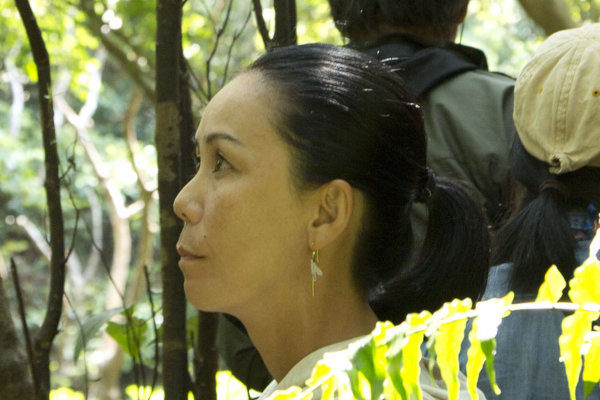Futatsume no mado
Still the Water
Naomi Kawase
»I would like spectators to realize that we human beings are not the centre of all things. We are but one part of a cycle in nature. I must construct a story where the conclusion is that this immense cycle – inside of which all of us exist – is of divine essence.«
– Naomi Kawase
Kyoko and her friend Kaito live on the island of Amami-Ōshima in the Pacific Ocean. Surrounded by stunning scenery and closely connected to nature, the teenagers enjoy their first taste of love. Both have to deal with dramatic family situations: Kaito’s father has abandoned the family, and the boy is hurt and embarrassed to discover his mother is involved with other men. Kyoko’s mother, the village shaman, on the other hand, is terminally ill with a tumour. Kyoko and her father bring her home from hospital so that she can spend her last days with her loved ones. It is a simple place, right by the sea, where the three face their fate with strength, love and dignity.
In magnificent images, Kawase reflects on themes such as life in harmony with nature and the eternal cycle of life and death. The Japanese film-maker describes Still the Water as her most important and significant film to date.

Naomi Kawase
Naomi Kawase graduated from the Osaka School of Photography, and she works in the area of both fiction and documentary film. She writes the scripts for her often biographical work herself. Personal strokes of fate, intimate family stories and nature feature prominently in her films. Kawase is one of the most respected Japanese directors. In 1997, she was the youngest person in the history of the Cannes Film Festival to win the Camera d’Or with her first feature film Suzaku. Since then, she has received other major international awards, including at IFFF Dortmund+Köln.
Films by Naomi Kawase (Selection)
Vision 2018 | An 2015 | Futatsume no mado 2014 | Chiri 2012 | Hanezu no tsuki 2001 | Genpin 2010 | Mogari no mori 2007 | Tarachime − Birth/Mother 2006 | Hotaru 2000 | Suzaku 1997






